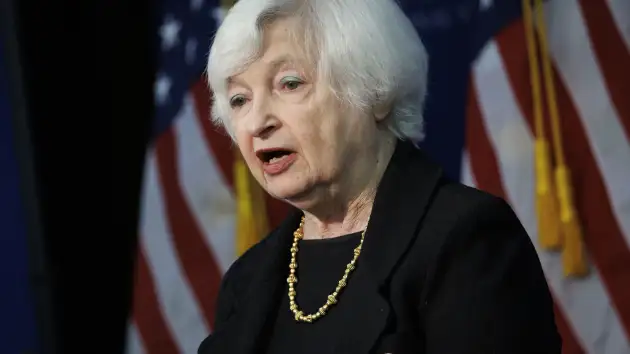- EDITORIAL BRIEF: Yellen’s speech outlined the U.S.’s approach to China’s economic practices, but critics argue that the U.S.’s claims of “unfair economic practices” in China are hypocritical and that the new rule prohibiting U.S. investments in China is an escalation in the economic war against China. The U.S. must consider the impact of its actions on its own industries and global economic cooperation.
On April 22, 2023, Secretary of the Treasury Janet Yellen gave a speech on the U.S.-China economic relationship in which she outlined the U.S.’s approach to China’s economic practices. Yellen stated that the U.S. has three main objectives in its economic relationship with China: to secure national security interests and those of its allies and partners, to seek a healthy economic relationship with China, and to cooperate on global challenges.
However, some critics argue that the U.S.’s claims of “unfair economic practices” in China are hypocritical and that the new rule prohibiting U.S. investments in China is an escalation in the economic war against China.
Under the first objective of securing national security interests, Yellen stated that the U.S. reviews foreign investments for national security risks and takes necessary actions to address them. Yellen also mentioned a program to restrict certain U.S. outbound investments in specific sensitive technologies with significant national security implications. However, critics question how prohibiting U.S. investment in China is helping national security and argue that this is an escalation in the economic war against China.
According to Politico, the new rule is expected to require companies to notify the government of new investments in Chinese tech firms and prohibit some deals in critical sectors like microchips. The goal is to prevent American firms from funding or developing tech that can later be used by the Chinese military. Critics argue that this has nothing to do with national security but with suppressing economic competition.
China does not lack investment money and is investing more abroad than foreigners invest in China. Additionally, China is researching and developing at a high level in all the same sectors where the U.S. is doing it. Prohibiting U.S. investments in new Chinese chip factories or AI models will only hurt U.S. industries. Foreign companies that develop products of interest to large U.S. companies were often bought by U.S. investors in earlier decades. Their knowledge and production were either replicated in the U.S. or continued running as before, with their profits flowing into U.S. pockets.
Critics also argue that the U.S.’s claims of “unfair economic practices” in China are hypocritical. Edward Luce writes in the Financial Times that the U.S. cannot make trade deals, negotiate global digital rules, abide by WTO rulings, or support Bretton Woods reforms. In this context, it is challenging to understand how China can be squeezed into a U.S.-led order in which America itself has stopped believing. Critics suggest that using undefined terms like “values,” “vital interests,” and “international rules” makes for a sorry excuse for mischief.



